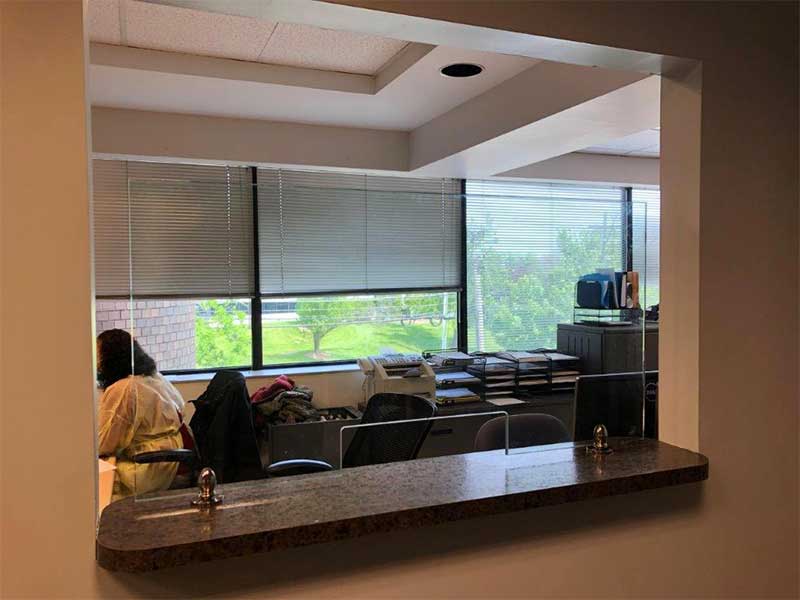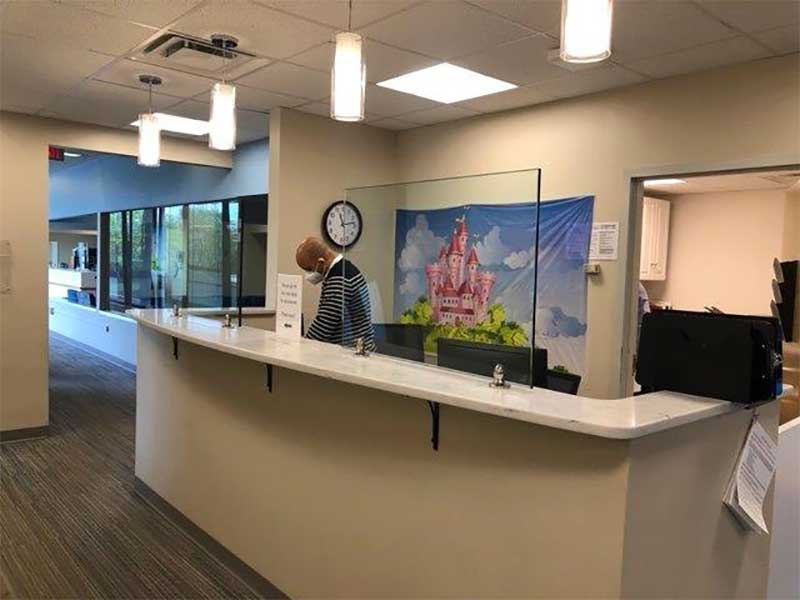Glass Partitions for Healthcare Offices

Partitions can help preserve the integrity and safety of offices
The NY Times recently reported “The modern corporate office is renowned for open, collaborative work spaces, in-house coffee bars and standing desks with room for two giant computer monitors.”
But the pandemic has reconfigured many of these offices as has the adoption of remote connections, zoom meetings, and concern for safety.
The article went on to describe alternative environments that employers are gradually adopting: Barriers that can be mounted on a desk is one of many ideas being mulled by employers as they contemplate a return to the workplace after coronavirus lockdowns. Their post-pandemic makeovers may include hand sanitizers built into desks that are positioned at 90-degree angles or that are enclosed by translucent plastic partitions; air filters that push air down and not up; outdoor gathering space to allow collaboration without viral transmission; and windows that actually open, for freer air flow.
If you are considering partitions for your workplace, contact Glass Tech. We have already helped many companies install partitions and other barriers to help create a safer and more secure workstations.
Glass Partitions for Hospitality

Partitions can help make employees and customers feel safer
Consider designing and installing engineering controls to reduce or eliminate exposures by shielding HCP and other patients from infected individuals. Examples of engineering controls include installing physical barriers such as partitions in triage areas or curtains that are drawn between patients in shared areas. Engineering controls may also be important to reduce exposures related to specific procedures such as using closed suctioning systems for airways suction in intubated patients. Another important engineering control is ensuring that appropriate air-handling systems are installed and maintained in healthcare facilities.
The installation of glass and/or plexiglas barriers may help curtail the spread of infection in many environment, such as the following:
- Classrooms
- Locker rooms/ school gyms
- Workstations
- Common employee areas
- Clinics and medical offices
- Libraries and study areas
- Waiting rooms




